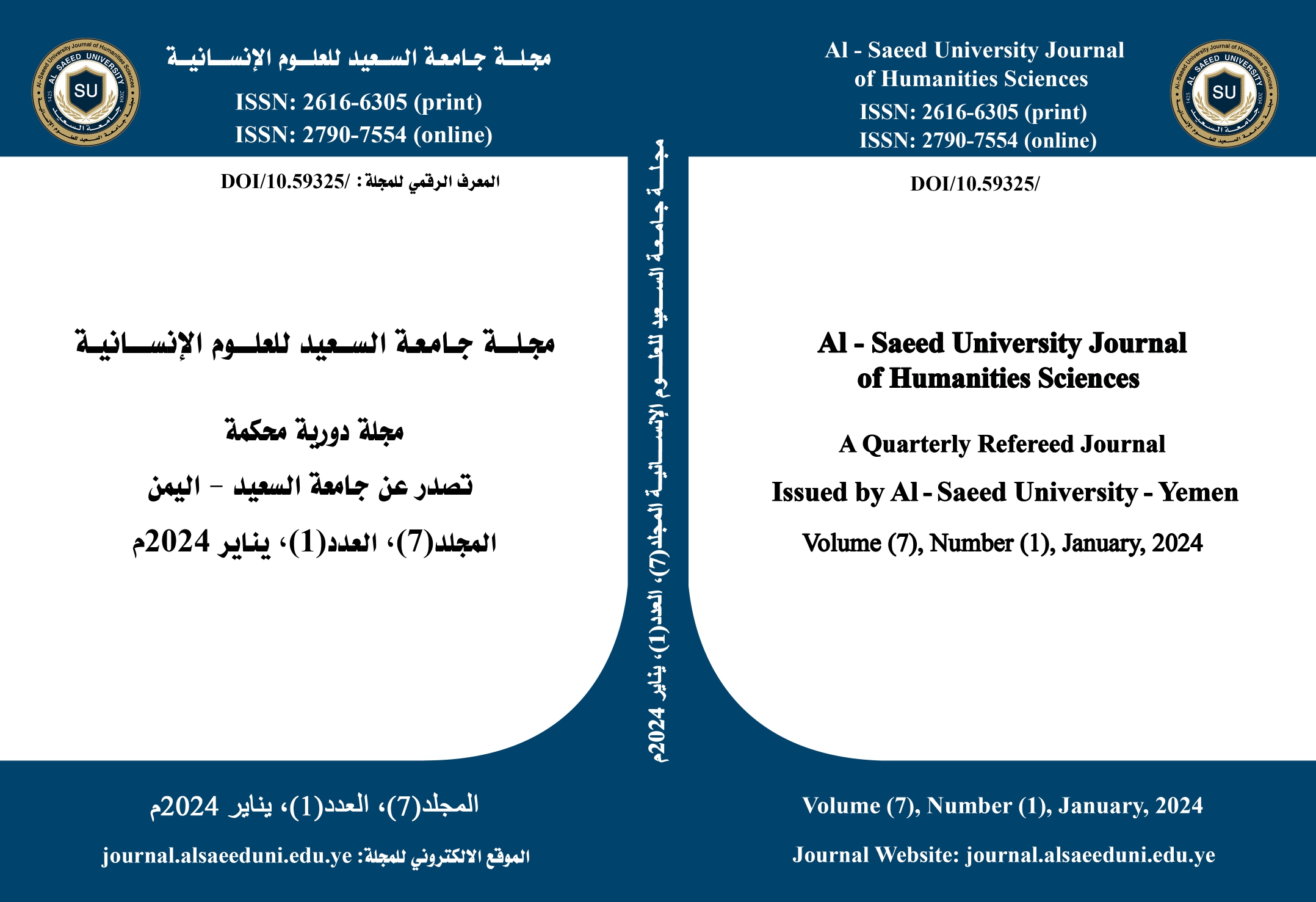حقوق المسنين في التشريعات المعاصرة من منظور إسلامي "دراسة مقارنة"
DOI:
https://doi.org/10.59325/sjhas.v7i1.203الكلمات المفتاحية:
حقوق المسنين، التشريعات المعاصرة لحقوق المسنين، ، المنظور الإسلامي لحقوق المسنينالملخص
هدف هذا البحث إلى بيان مفهوم المسن وعرض مكانته في الإسلام والتشريعات المعاصرة، وعرض المجالات الحقوقية للمسنين من خلال الشريعة الإسلامية والتشريعات المعاصرة، وكشف الآثار المترتبة على رعاية حقوق المسنين في الإسلام والتشريعات المعاصرة. استخدم المنهج الوصفي المقارن.
توصل البحث إلى عدة نتائج، أبرزها أنه لم يتم الاتفاق على سن معينة محددة للشيخوخة، وحددت وفق المواثيق الدولية بسن الستين أو خمسة وستين. وتعدُّ قضية المسنين قضية إنسانية عالمية اهتمت فيها التشريعات الإسلامية والتشريعات المعاصرة، كما يحتل المسن مكانة متميزة في الشريعة الاسلامية تتمثل في مراعاته وتقدير ضعفه بينما تنظر القوانين والتشريعات المعاصرة إلى المسنين باعتبارهم مشكلة تواجه العالم بأسره، كما أن مصار رعاية كبير السن متعددة في المجتمع الإسلامي، تبدأ بالأسرة ثم المجتمع فالدولة، بينما تقتصر الرعاية في المجتمعات الغربية على الدولة. إضافة إلى ذلك شملت الشريعة الاسلامية وكذلك التشريعات المعاصرة نصوصاً حول حق المسنين في الرعاية، والتزمت الشريعة الإسلامية برعاية المسنين، وتلقي الرعاية من قبل الأسرة والمجتمع.
بناء على هذه النتائج قدم البحث مقترحات عدة، أهمها: تمكين كبار السن من تحديد احتياجاتهم بأنفسهم، وإتاحة الفرص لهم لاستغلال مهاراتهم وخبراتهم التي اكتسبوها في حياتهم استغلالاً كاملاً، بما يعود بالفائدة عليهم وعلى المجتمع، ووضع آليات والقواعد من قبل المنظمات الدولية لحماية كبار السن في المجتمع، من خلال التوعية بالاهتمام بالمسنين
التنزيلات
منشور
كيفية الاقتباس
إصدار
القسم
الرخصة
يحتفظ الباحثون بحقوق النشر. ويتم ترخيص البحوث بموجب ترخيص Creative Commons CC BY 4.0 المفتوح، مما يعني أنه يجوز لأي شخص تنزيل البحث وقراءته مجانًا. وإعادة استخدام البحث واقتباسه شريطة أن يتم الإشارة إلى المصدر الأصلي. تتيح هذه الشروط الاستخدام الأقصى لعمل الباحث وعرضه.



